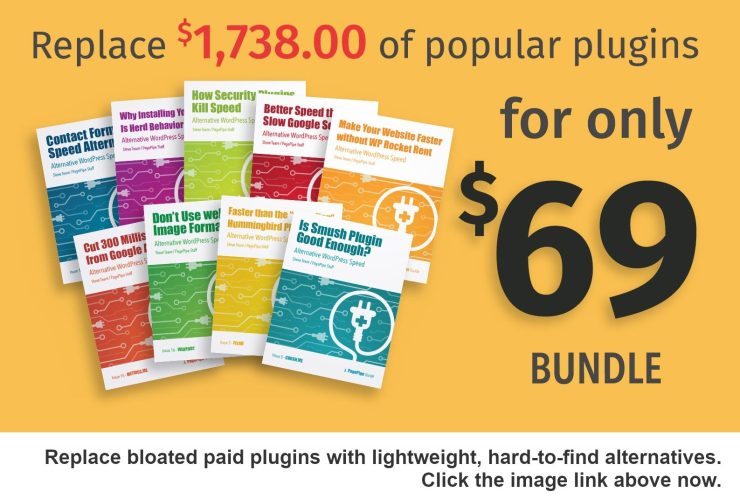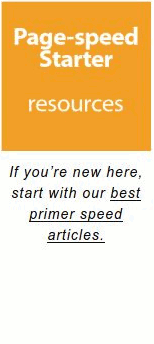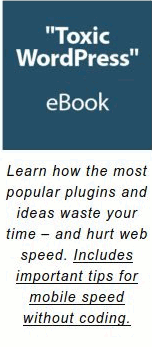We’re not SEO experts. Nor do we want to be. We’re user experience experts specializing in one aspect of UX: speed. Gaming SEO will not save us. Being kind to people is the sure win. Speed is web hospitality.
Countless people are making a business of search engine optimization (SEO).
- On-page SEO
- Off-page SEO
- Skyscraper strategy for backlinks
- SEO software
- SEO services such as ahrefs, Semrush, and Moz.
Each year, companies spend more than $65 billion on search engine optimization (SEO). Yet, no one guarantees anything. Some guarantee the first page on the SERPs – but it’s a false promise.
SERP: Search Engine Results Pages refer to Google listings after searching.
Is any SEO service in any way useful or are they all useless?
REFERENCES from our PagePipe terms of service:
14. TESTING
We make reasonable efforts to standardize the site. There is no way we can test or guarantee for every single past-and-future browser or device. We do speed tests and reports on Pingdom.com and WebPagetest.org. We do not use Google PageSpeed Insight scores for benchmarking.
16. RANKING DISCLAIMER
By signing this agreement, you acknowledge that PagePipe.com neither owns nor governs the actions of any search engine. You also acknowledge that due to fluctuations in the relative competitiveness of some search terms, recurring changes in the search engine algorithms, and other competitive factors, it is impossible to guarantee number one rankings or consistent top ten rankings, or any other specific rankings for any particular search term.
That explains our position. Selling SEO is a ripoff. We sell user experience. And only one aspect of UX – speed.
So besides relevant content what makes a difference in internet traffic?
Titles are still important.
While titles are important for findability, they are critical for click-through. You have to hook people. They’re choosing between you and 10 other listings on a Google results page. They’ll read “the one” most specific to the decision they’re trying to make. And if it sounds easy to read. And interesting – not boring.
Findability is the ease of finding information. Both using search engines and by users already on the website.
So here’s one example of how to make titles more appealing:
Parent Category is: Shoes
Sub Category: Nike
Product Name: Air Max
First, refresh the publication date of your post about this product. Perceived freshness affects buyer behavior.
Now plug this phrase into Google search: Air Max Nike Shoes
We see popular questions pop up suggested by Google. They will be different for each user and geography. They will not be the same results everywhere in the world because of user search intent. They want to hook you into a search – and see advertising, so they make money (clicks).
This is our results:
- What are Nike Air Max shoes for?
- What is the best Nike Air Max shoe?
- Do Air Maxes make you taller?
- What are the newest Air Max shoes?
Four questions. All arouse human curiosity. Use something similar for the title on your blog page. Don’t write for machines. Write for humans. Tell them the conclusion in the title. It’s a headline. Study how to write eye-catching headlines for people.
- Use numbers to give concrete takeaways
- Use emotional objectives to describe your reader’s problem
- Use unique rationale to demonstrate what the reader will get out of the article
- Use what, why, how, or when
- Make an audacious promise
For the permalink use something different: Air Max Nike Shoe review (or something similar).
The title is the implied (connotative) meaning. The permalink is the denotative or dictionary definition of what it is. This appeals to both sides of the human mind. Emotion and logic.
Both will appear in the listing.
Nothing says they should match. You have the opportunity to convey more meaning by not being redundant. This will improve your traffic. How do we know? It’s worked for our profit. It’s not provable – like all SEO.
MYTH: I’ve installed Yoast, so I’m all set
Sometimes, this statement makes me want to spit out my coffee and laugh; other times, it makes me sad that new bloggers can be so gullible and clueless.
Why?
Because this is an utterly ridiculous statement.
First, some newer bloggers mistakenly think that Yoast “gives them SEO.” And, of course, it doesn’t. In fact, there is no plugin that “gives you SEO.” There is no such thing. Rather the blog posts you write and the activities you do for a post will get you organic traffic. There is no silver bullet and no easy way around this.
Rather, Yoast attempts to measure your SEO. It uses some basic formulas that “check off” some of the boxes. Notice how I say “attempts.” This is because it’s very formulaic. And, also, it’s not very accurate nor predictive. In fact, often it gives you bad advice because it will direct you to do things that will lead to keyword stuffing (which is very bad for SEO) as well as poor writing, and that is bad for user experience. And, if it’s a bad user experience, it’s bad for SEO.
Many people mistakenly think that if they get a green light that their post is SEO optimized and will rank well. This simply isn’t true. Far from it. It’s all based on the keyword phrase that you enter. It does not tell you if that’s a highly searched term nor your chances of ranking for it. And, it’s simply garbage in/garbage out.
Godspeed-
![]()
Steve Teare
performance engineer
April 2025
PagePipe Site Tuning Services for Speed
Instead of band-aid approaches, we drill down to the root cause of your slow site. This is origin optimization. Also known as site tuning. To do this, we analyze site components:
- Hosting
- Theme
- Plugins
- Scripts and third-party services.
- Images and media library.
- We minimize globally loading plugin effects.
Find out more details about Site Tuning – Get Speed!






